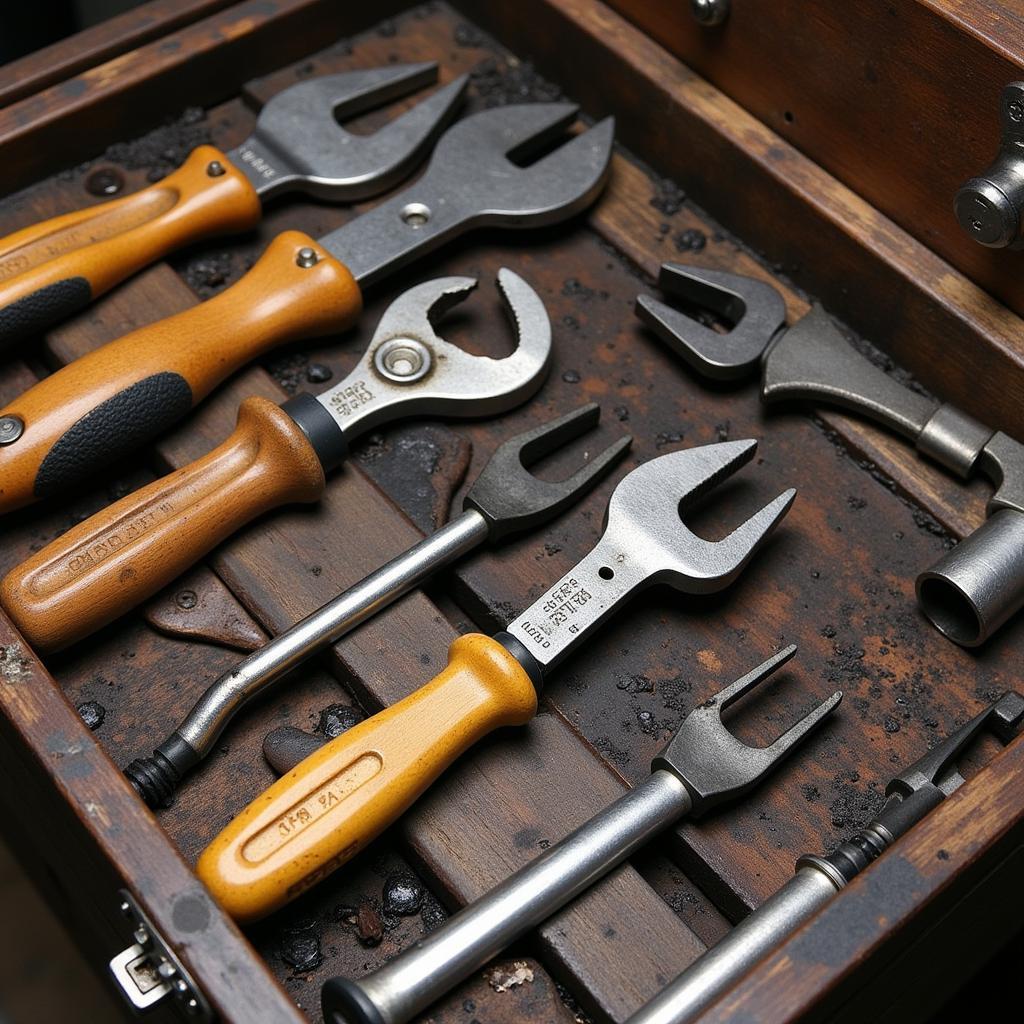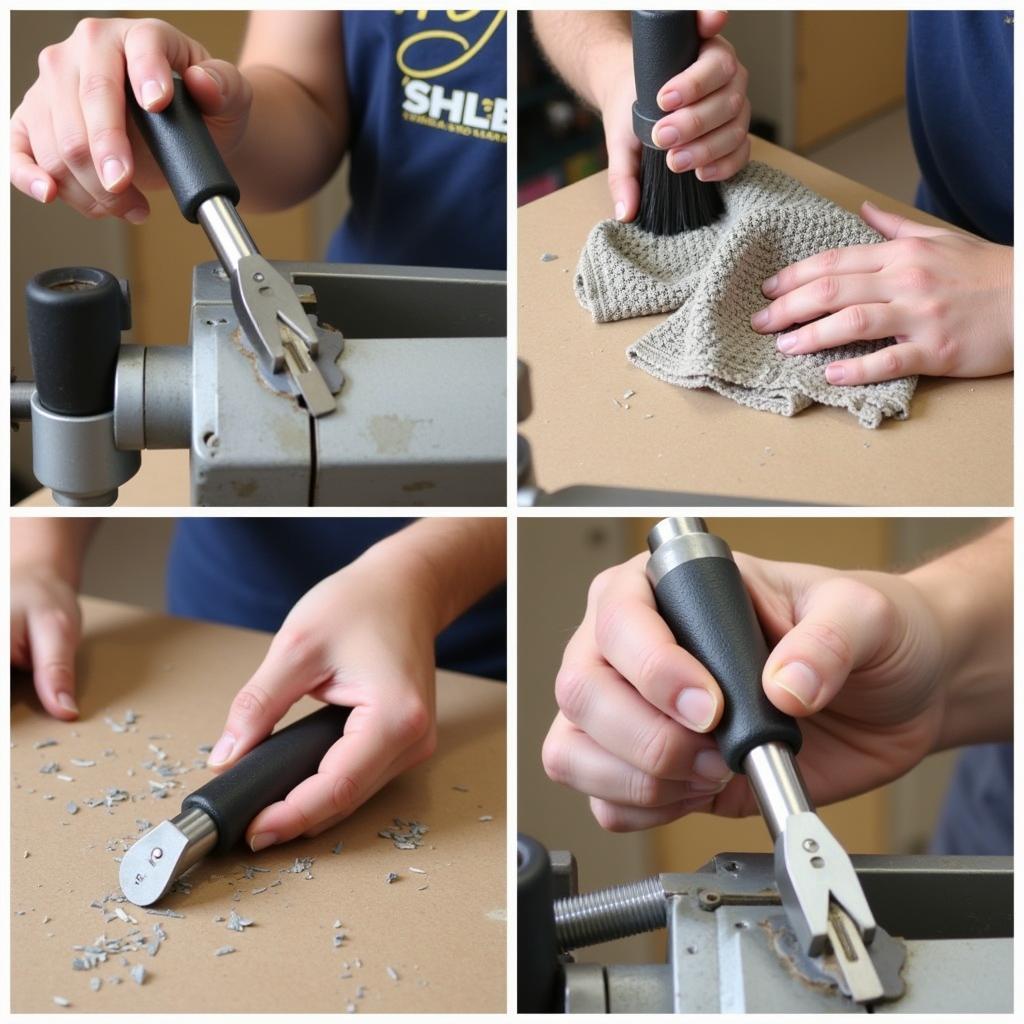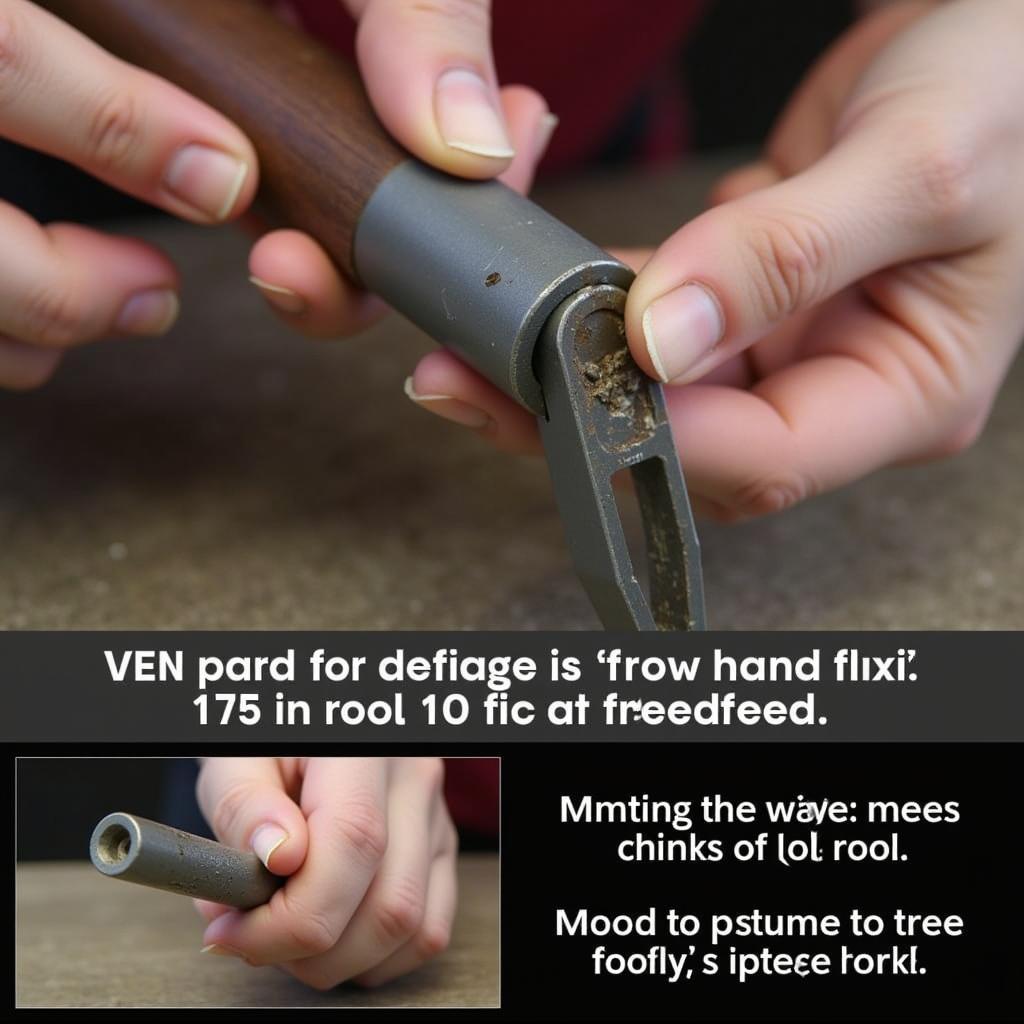Care and maintenance of metal work hand tools is crucial for their longevity, effectiveness, and safety. Proper upkeep ensures tools perform as intended and reduces the risk of accidents caused by malfunction or damage. This guide provides comprehensive information for JSS1 students and anyone working with metalwork hand tools.
Understanding the Importance of Tool Care
Metalwork hand tools are investments. Like any valuable asset, they require regular care and maintenance to ensure they function optimally and last a long time. Neglecting these essential practices can lead to premature wear and tear, reduced performance, and potential safety hazards.
Why is Tool Maintenance Necessary?
Regular maintenance offers several benefits:
- Extended Tool Lifespan: Proper care minimizes wear and tear, maximizing the tool’s useful life.
- Enhanced Performance: Well-maintained tools function efficiently, leading to better work quality.
- Improved Safety: Regular inspections and maintenance help identify and rectify potential safety hazards, preventing accidents.
- Cost Savings: Maintaining tools is far more economical than replacing them frequently.
 Proper Tool Storage for Metalwork Hand Tools in JSS1
Proper Tool Storage for Metalwork Hand Tools in JSS1
Cleaning and Protecting Your Tools
Cleaning your tools after each use is a fundamental step in their maintenance. Removing dirt, debris, and moisture prevents corrosion and ensures the tools are ready for the next task.
Steps for Cleaning Metalwork Hand Tools:
- Remove Loose Debris: Use a brush, cloth, or compressed air to remove any loose chips, dirt, or dust.
- Apply Solvent (if necessary): For stubborn grime or grease, use a suitable solvent.
- Wipe Dry: Thoroughly dry the tools to prevent rust.
- Apply Protective Coating (optional): A light coat of oil or rust inhibitor can further protect the tools, especially in humid environments.
 Cleaning Metalwork Hand Tools: A Step-by-Step Guide for JSS1
Cleaning Metalwork Hand Tools: A Step-by-Step Guide for JSS1
Proper Storage of Metalwork Hand Tools
Correct storage is as important as cleaning. A designated storage area protects tools from damage and makes them readily accessible when needed.
Effective Storage Techniques:
- Toolboxes: A toolbox is an ideal storage solution, keeping tools organized and protected.
- Wall-mounted racks: Racks provide easy access and visibility for frequently used tools.
- Designated drawers or cabinets: For larger tools or those used less often, dedicated drawers or cabinets are suitable.
Remember to store tools in a dry environment to prevent rust and corrosion.
“A clean and organized toolbox is a reflection of a skilled craftsman,” says John Smith, a seasoned metalwork instructor with over 20 years of experience. He emphasizes the importance of instilling good tool care habits early on in a student’s training.
Inspecting and Maintaining Your Tools
Regular inspection is key to identifying potential problems before they escalate. Look for signs of wear and tear, damage, or malfunction.
What to Look For During Inspections:
- Rust or Corrosion: Address any signs of rust promptly to prevent further damage.
- Cracks or Chips: Damaged tools can compromise safety and effectiveness.
- Loose Parts: Tighten any loose screws, bolts, or handles.
- Dull Blades or Edges: Sharpen dull blades or edges for optimal performance.
 Inspecting Metalwork Hand Tools for Damage and Wear in JSS1
Inspecting Metalwork Hand Tools for Damage and Wear in JSS1
Conclusion
Care And Maintenance Of Metal Work Hand Tools Jss1 is essential for ensuring their longevity, optimal performance, and safety. By following the guidelines outlined in this article, you can significantly extend the life of your tools, improve your work quality, and minimize the risk of accidents. Remember, proper tool care is a fundamental aspect of good craftsmanship.
FAQs
- How often should I clean my metalwork hand tools? Ideally, after each use.
- What type of oil should I use to protect my tools? A light machine oil or a specialized rust inhibitor is recommended.
- Where should I store my metalwork hand tools? A dry, organized toolbox, wall-mounted rack, or designated drawer is suitable.
- What should I do if I find a crack in a tool? Discontinue use immediately and replace the tool.
- Why is it important to dry tools thoroughly after cleaning? To prevent rust and corrosion.
- What are the signs of a dull chisel? It will slip or skid across the metal instead of cutting cleanly.
- How can I sharpen a dull chisel? Using a sharpening stone or a honing guide.
Need further assistance? Contact us via WhatsApp: +1(641)206-8880, Email: [email protected] or visit us at 910 Cedar Lane, Chicago, IL 60605, USA. Our customer support team is available 24/7.

Leave a Reply